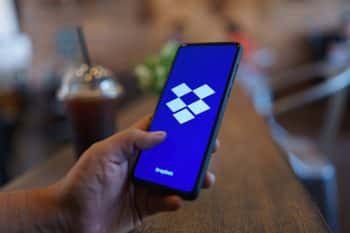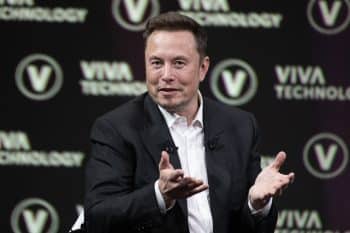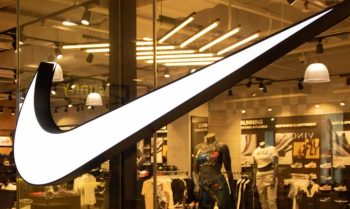Home » Business News • News Stories • Spotlight » Corruption scandals that shook the world
Corruption scandals that shook the world
https://www.whatjobs.com/news/business-news/corruption-scandals-that-shook-the-world

By Hugh Fort in Business News, posted May 11, 2022

Twenty-five years ago, when Transparency International was founded, corruption was seen as the necessary price of doing business and something so deeply rooted that exposing and fighting it was regarded as futile and even harmful.
We live in a different world now: citizens, media, and politicians across all areas abuse their power.
We've put together a list of some of the biggest scandals over the last 25 years that inspired widespread public condemnation, capsized governments, and sent people to prison.
READ MORE: THE 10 WORST WHITE-COLLAR CRIMES IN HISTORY
The Panama Papers
After a huge leak from the Panamanian law firm, Mossack Fonseca, the Panama Papers exposed the darkest secrets of the financial secrecy industry.
The Panama Papers showed that Mossack Fonseca created 214,000 shell companies for people who wanted to keep their identities hidden.
Behind the shell companies were at least 140 politicians and public officials, including 12 government leaders and 33 individuals or companies who were blacklisted or on sanction lists by the United States government for offenses like trafficking and terrorism.
Since the scandal erupted, many heads of government have resigned or faced prosecution, at least 82 countries launched formal investigations and Mossack Fonseca closed.
As a result of the Panama Papers, a number of countries agreed to end financial secrecy, with at least 16 countries or international bodies achieving at least one important reform and roughly 23 countries recovering at least US$1.2 billion in taxes.
Fujimori’s Peru: death squads, embezzlement, and good public relations
How does an ex-president get approval from two-thirds of his citizens while standing trial for human rights violations?
Peru’s Alberto Fujimori partly managed this by using over 75 percent of the National Intelligence Service’s budget to bribe politicians, judges, and the media in 2009.
Fujimori gave off a clean image to the public during his presidency while he used death squads to kill guerrillas and allegedly embezzled US $600 million in public funds.
After fleeing to Japan in 2000, he became the first elected head of state to be deported to his home country, tried and convicted for human rights abuses.
Facing more than 30 years in prison, Fujimori joins a long line of former Peruvian presidents who have been investigated or jailed for corruption.
He was initially jailed for seven years in 2009, and given a further six year sentence after admitting bribery.
FIFA’s football parallel universe
On 27 May 2015 nine current and former Fédération Internationale de Football Association (FIFA) officials faced charges of racketeering and money-laundering which changed the sporting landscape overnight.
Suddenly a system of “rampant, systemic and deep-rooted corruption” was brought into global focus.
The surprising re-election of FIFA president, Sepp Blatter exposed just how much football exists in a parallel universe without accountability.
It is easy to understand why public trust in FIFA fell to an all-time low.
In 2017, Transparency International and Forza Football, a football fan platform with more than 3 million subscribers, completed a survey of 25,000 fans from over 50 countries to find out what they thought.
At the time, 53 per cent of fans had no confidence in FIFA and only a quarter of fans globally thought that newly reelected president, Gianni Infantino, restored trust in FIFA.
The investigation began in 2015 as the US government started an investigation into Blatter and several current and former FIFA officials.
Criminal charges were then announced in Blatter's home country of Switzerland in September of that year.
Blatter and his cohorts were suspended and Blatter was subsequently banned from taking any part in FIFA activities over the following eight years.
The ban was reduced to six years after an appeal in 2016.
However, Blatter was then given a second six-year ban in March of 2021 after a probe into enormous bonus payouts.
Maldives: a paradise lost
In the Maldives, tourism is the largest contributor to the economy – it’s where the money is.
So it should come as no surprise that the country’s biggest corruption scandal is also linked to tourism.
In 2016, Al Jazeera revealed that roughly US$1.5 billion was laundered through fake tourism investments in a scheme of astounding simplicity.
The money was allegedly transported to the Maldives in cash, approved by the financial authority and transferred to private companies, where it appeared as clean profits from tourism investments.
Another scandal that came to light in 2018 saw more than 50 islands and submerged coral lagoons leased out to tourism developers in no-bid deals.
At least US$79 million from the lease fees was embezzled into private bank accounts and used to bribe politicians.
The scandal involved local businessmen and international tourism operators as well as former president Abdulla Yameen, who allegedly received US$1 million in funds.
Follow us onYouTube,Twitter,LinkedIn, andFacebook











